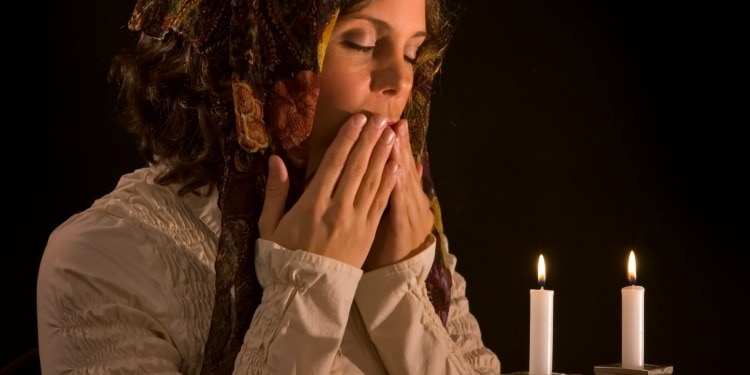The Blessing of the Sabbath
The Fellowship | December 21, 2018

“‘The Israelites are to observe the Sabbath, celebrating it for the generations to come as a lasting covenant. It will be a sign between me and the Israelites forever, for in six days the LORD made the heavens and the earth, and on the seventh day he rested and was refreshed.'” — Exodus 31:16–17
One of the founding principles of The Fellowship is God’s eternal promise He made to Abraham in Genesis 12:3, “I will bless those who bless you.” This is one of 18 devotions exploring the concept of blessing, barak, which means, “to increase,” or “bring down Divine abundance.” To learn more, download our complimentary copy of Rabbi Eckstein’s teachings on being a blessing to others.
If we were to list the benefit of living in the United States, certainly among them would be the freedoms we enjoy — freedom of religion, speech, and freedom to pursue our dreams and goals. Likewise, we undoubtedly would mention the high standard of living we enjoy and our wealth of material possessions.
Indeed, American society is based on the premise of our inalienable right to “life, liberty, and the pursuit of happiness.” The underlying belief is that anyone can achieve the “American dream” if they work long enough and hard enough.
But would it shock you to hear that those same beliefs and material blessings may also be at the very root that is slowly destroying the moral fabric of our society? This is the very argument that former Soviet dissident Alexander Solzhenitsyn made during his famous Harvard University commencement speech nearly thirty-five years ago.
The reason for the moral decay prevalent in Western society, in his view, was our obsession with nationalistic humanism, a philosophy that regards man as the center of everything that exists. Western society, he maintained, was based on a dangerous philosophy that condoned worship of man and his material needs.
Said Solzhenitsyn, “We have lost the concept of a Supreme Complete Entity which used to restrain our passions and our irresponsibility. We have placed too much hope in political and social reforms, only to find out that we were being deprived of our most precious possession: our spiritual life.”
To those concerns — which many of us, Christians and Jews, would agree still persist — I believe we can do much to stem the tide by returning to our faith values and roots that are reflected in honoring the Lord on His day. Through the observance of the Sabbath, we can reaffirm the centrality of the family, the home, and the synagogue or church in our lives.
By observing the Sabbath, we bear testimony to the existence of a Supreme Being, who loves us and is concerned for our welfare. The Sabbath can bring to a lost society searching for its soul the essential building blocks that can reinvigorate and transform it. Through the Sabbath, we can build a nation and civilization with a deep moral character, a strong spiritual backbone, and a profound sense of justice, community, and fellowship.
We desperately need the Sabbath today, and the challenge for each one of us is how we can incorporate the blessings of the Sabbath into our lives. Consider how you might respond to that challenge in your home, your place of worship, and your community.
